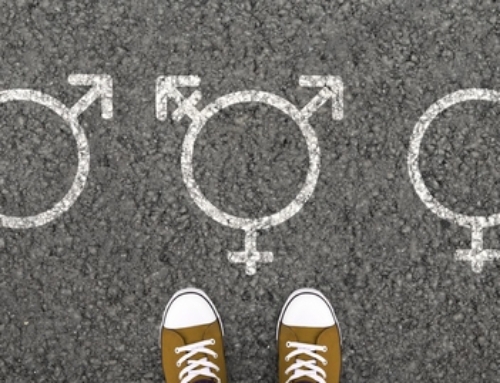By Uzma Saeed
As you browse through the internet and particularly social media, you may encounter discussions between men and women with differing views. Some women express concerns about how they are being treated by men. Others, based on these stories, hold the view that men can exhibit toxic behavior and advocate for change. They may mention male dominance and patriarchy as factors that can negatively impact the growth and well-being of women. Some feminists believe that harmful behavior by some men can contribute to many societal problems.
This topic brings to mind the concept of a pendulum in physics, which swings from one extreme to the other before eventually reaching a state of equilibrium. Similarly, there are some individuals who have expressed the belief that women hold little importance in the world and that men are the only ones capable of running it. However, this perspective overlooks the significant contributions of women and the importance of gender diversity in all aspects of life. If men were truly the only ones necessary for the functioning of society, then Adam (peace be upon him) would have been the only human created, or natural selection would have eliminated the female species altogether.
It’s important to recognize that men and women both have unique strengths and should be valued equally. While striving for gender equality is important, it’s not about women trying to imitate men or compete with them for the same life choices. Instead, it’s about creating a society where both genders have equal opportunities to pursue their interests and goals.
For example, while it’s important to encourage girls to explore STEM fields, it’s not helpful to promote it as a field solely for men and that girls should enter it just to prove that they can. It’s important to provide a level playing field and allow individuals to choose their own paths based on their own interests and strengths, rather than trying to meet a benchmark set by men. When feminists strive to compete with men, solely for the sake of imitating their life choices, they may overlook their unique strengths, potentially leading to an unfulfilling life. It is important to recognize that both genders possess distinct strengths that complement each other.
Rather than adopting the attitude of “anything men can do, women can do too,” it is crucial to value and celebrate diversity. For instance, in the United States, there is a push to encourage girls to pursue STEM fields, which have traditionally been male-dominated. While it is admirable for women to pursue their passions, it becomes problematic if the bar is set at the level of male performance, which can lead to undue pressure to conform to a certain standard.
It is evident that a climate of reciprocal retaliation exists, with both genders, particularly those on the extreme ends, unwilling to concede to the other side, both in their words and actions. The confrontational nature exhibited by both parties is not only detrimental to a healthy discourse but also hinders the overall functioning of society. The internal conflict is eroding the social fabric and giving rise to divisions that will require significant time and effort to heal.
When examining gender relations from an Islamic perspective, a particular verse stands out as it defines the ideal mutual relationship that should exist between men and women.
The believing men and believing women are allies of one another. They enjoin what is right and forbid what is wrong and establish prayer and give zakah and obey Allah and His Messenger. Those – Allah will have mercy upon them. Indeed, Allah is Exalted in Might and Wise. (Qur’an 9:71)
Through the concept of “allies,” Islam establishes a framework for collaboration. The term used in Arabic for “allies” also encompasses the meanings of “helpers, supporters, friends, and protectors.” If these essential elements of alliance deteriorate within a society, the first casualty is often the family unit. When families become dysfunctional and disintegrate, children are more susceptible to developing behavioral issues and making unhealthy life choices. Preserving the integrity of the family unit is therefore crucial for fostering the well-being and positive development of children.
From a competitive standpoint, Islam motivates both men and women to vie for good deeds. In the eyes of Allah, they are equivalent in spiritual worth, meaning that one’s striving for virtue is rewarded without regard to gender. However, it is reasonable to recognize that from a social perspective, the roles and responsibilities of each gender are distinct, given the physical and emotional differences that exist between them.
In order to ensure a well-functioning society, Islam provides guidelines to safeguard the rights of all individuals. Gender roles are defined and responsibilities are assigned based on the unique physical, emotional, and capabilities of each gender. Scientific evidence suggests that the intelligence quotient (IQ) of both genders is equal. It is likely due to this equality that Islam does not restrict women to a narrow domain, contrary to common perception. Women are encouraged to pursue education, professional careers, and even entrepreneurship. However, their primary responsibility remains their home and family. Islam also advises women not to harbor envy towards the privileges or blessings granted to the opposite gender. It is common for some individuals to believe that the grass is always greener on the other side. When one becomes preoccupied with what others possess, they may easily overlook the blessings they themselves have been bestowed with, leading to a life consumed by bitterness and resentment over what they lack.
The gender roles in Islam are defined based on their physical and emotional capabilities and are complementary in nature. Men are typically assigned the role of breadwinners as they are better suited for hard and heavy tasks. However, this does not mean that women are not allowed to earn money and keep it for themselves, as long as it does not interfere with their household responsibilities. Domestic duties, on the other hand, are usually assigned to women as they are more compassionate and nurturing by nature. The bottom line is that each gender adds strength to the other with their unique capabilities, and neither can do without the other. It is important to recognize that these differences in gender are by design and each gender has its own unique strengths and weaknesses.
The challenge of achieving a harmonious and prosperous society is increasingly complex in a self-centered and individualistic culture. In this context, people tend to prioritize their personal interests and ideas, hindering the development of a collective and collaborative spirit. The solution, therefore, lies in shifting from a “Me” mentality to a “We” mindset, which fosters trust and enhances teamwork. Islam recognizes the importance of collaboration to create a well-functioning society, where a competitive spirit is encouraged but must be accompanied by mutual respect and realistic expectations between genders. Without such a framework, a combative attitude can threaten the functioning of society.








